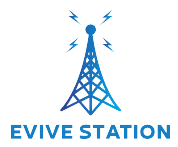Water systems play a critical role in enhancing the efficiency and performance of HVAC (Heating, Ventilation, and Air Conditioning) systems. Read More
1. Cooling Tower Operations
- Heat Dissipation: Cooling towers use water to remove heat from HVAC systems by evaporative cooling. Hot water from the system is circulated through the tower, where it releases heat through evaporation, and cooled water returns to the HVAC equipment.
- Temperature Regulation: Proper water flow and temperature control in cooling towers ensure consistent cooling efficiency. Monitoring water levels, flow rates, and temperature gradients helps maintain optimal performance.
2. Chilled Water Systems
- Heat Transfer: Chilled water systems circulate cold water to absorb heat from air handlers or process equipment. This chilled water then returns to chillers for re-cooling, enhancing indoor comfort and process efficiency.
- Energy Efficiency: Efficient operation of chilled water systems relies on maintaining clean water, proper chemical treatment, and regular maintenance. This ensures minimal energy consumption and extends the lifespan of HVAC equipment.
3. Boiler Systems
- Heat Distribution: Boiler systems use water to distribute heat throughout buildings via radiators, underfloor heating, or air handlers. Hot water or steam generated by boilers provides heating during colder months, enhancing occupant comfort.
- Efficiency Considerations: Proper water treatment, boiler maintenance, and system insulation are crucial for maximizing energy efficiency. Monitoring water quality, pressure levels, and combustion efficiency helps prevent energy losses and system downtime.
4. Water Treatment and Quality Control
- Scale and Corrosion Prevention: Water treatment programs mitigate scale formation and corrosion within HVAC water systems. Scale buildup reduces heat transfer efficiency and increases energy consumption, while corrosion leads to equipment damage and leaks.
- Chemical Balancing: Maintaining proper chemical levels and water pH balances inhibits microbial growth and ensures system cleanliness. Regular water testing and chemical dosing prevent fouling and maintain equipment integrity.
5. Integrated System Management
- Automation and Controls: Advanced control systems monitor water system parameters, such as flow rates, temperatures, and pressure levels. Automation optimizes operation schedules, adjusts setpoints based on weather conditions, and alerts operators to potential issues.
- Energy Recovery: Water systems facilitate energy recovery strategies, such as heat exchangers, to capture waste heat from HVAC processes. This recovered energy can be reused for heating domestic water or preheating incoming air, improving overall energy efficiency.
6. Maintenance Best Practices
- Regular Inspections: Schedule routine inspections of water systems, including cooling towers, boilers, and chilled water loops. Identify and address leaks, fouling, or mechanical issues promptly to prevent system inefficiencies and costly repairs.
- Cleaning and Servicing: Periodically clean cooling tower fill material, inspect piping for debris, and flush systems to remove sediment. Maintain proper water treatment levels and replace worn components to ensure reliable operation and extend equipment lifespan.
Summary
Water systems are integral to maintaining HVAC efficiency by facilitating heat exchange, temperature regulation, and energy recovery within buildings. Effective management of cooling towers, chilled water systems, boilers, and water treatment programs optimizes energy efficiency, reduces operational costs, and enhances occupant comfort. By implementing proactive maintenance practices, leveraging advanced controls, and monitoring system performance, building owners and HVAC professionals can achieve sustainable and efficient operation of HVAC water systems. Embrace the synergy between water systems and HVAC technology to maximize performance and support environmentally responsible building practices.
